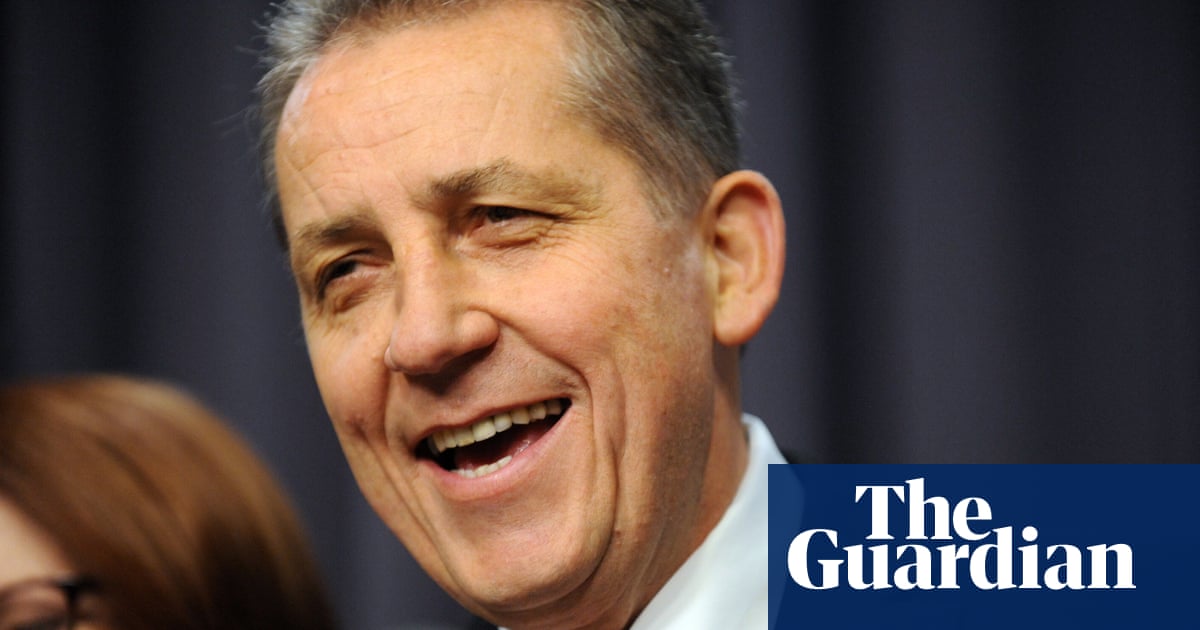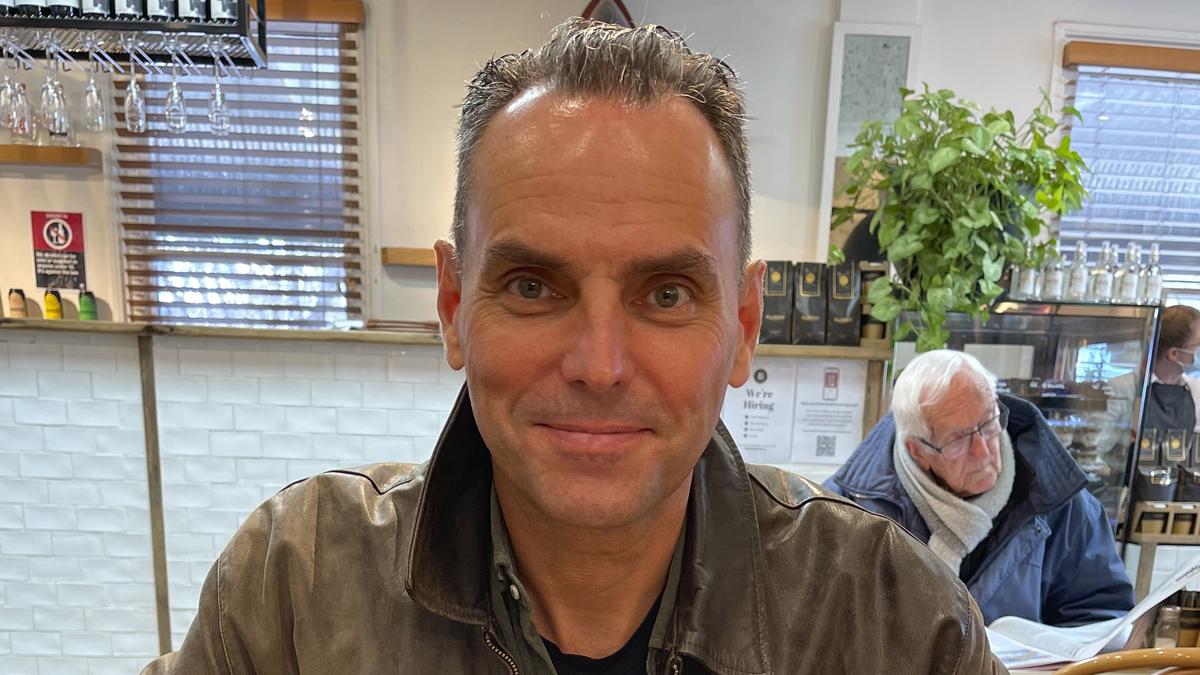Former Labor senator to be Australia’s first anti-slavery commissioner

- by Admin
- November 10, 2024

The former Labor minister Chris Evans will be Australia’s first anti-slavery commissioner, with the attorney general, Mark Dreyfus, announcing that the longtime senator will take up a five-year term in December.
Evans served as immigration and workplace relations minister under the Rudd and Gillard governments, and is a former chief executive of anti-slavery group Walk Free’s faith-based arm Global Freedom Network.
“Modern slavery deprives victims of their dignity, fundamental rights and freedoms,” Dreyfus said, announcing Evans’s appointment.
“It encompasses a range of exploitative practices, including human trafficking and slavery-like practices such as forced marriage, forced labour, deceptive recruiting and debt bondage.”
Walk Free’s Global Slavery Index estimates there are 41,000 people living in modern slavery in Australia – a rate of 1.6 people per thousand.
The Be Our Guests report, released in September by the New South Wales anti-slavery commissioner, Dr James Cockayne, estimated 16,400 people were trapped in modern slavery in Australia’s most populous state.
In response, the NSW parliament has launched an inquiry into modern slavery risks for temporary migrant workers. The inquiry is now accepting submissions and will hold public hearings in the new year.
The Be Our Guests report focused on temporary migrant workers employed in rural and regional NSW, including Pacific islanders employed in the Pacific Australia Labour Mobility (Palm) scheme.
Cockayne said while temporary migration was largely well managed – benefiting workers, their home communities, and businesses in rural and regional areas – there was an urgent need to address the situation of a minority of workers at risk of modern slavery.
“Temporary migrant workers, particularly low-wage workers in agriculture, horticulture and meat processing in rural NSW, face risks of debt bondage, deceptive recruiting, forced labour and, in extreme cases, servitude, sexual servitude or even human trafficking,” the report said.
Thousands of Palm workers have “disengaged” from the scheme, leaving exploitative workplaces, but because their visa and right to stay in Australia is tied to their particular employer, leaving the program means they are left without rights.
“In becoming undocumented or disengaged, workers frequently lose their access to accommodation, health insurance and, of course, formal income,” the report said.
Cockayne said: “We need systems in place … so you don’t end up with this kind of emerging humanitarian crisis.”
Hundreds of former Palm workers have been sleeping in campsites in the NSW Riverina, and community groups offering support have been overwhelmed trying to assist them.
“Local community service providers have literally run out of tents to provide the hundreds of disengaged migrant workers that are showing up in Griffith and Leeton,” Cockayne said in a speech. “Literally run out of tents. And these people cannot access crisis accommodation because they’re out of visa status.”
Moe Turaga, a Fijian survivor-advocate, was enslaved at 17 on a grape farm in Victoria after his passport was confiscated and his wages stolen. He works now in Queensland advocating for migrant workers facing exploitation.
“People like me come to Australia hoping for better job opportunities and a better future for our families, but many are confronted by harsh realities once they arrive,” he said. “Right now, too many people are being denied their basic rights.”
Sophia Kagan, principal policy adviser on labour migration at the NSW commissioner’s office and co-author of the Be Our Guests report, said women were particularly vulnerable to modern slavery.
“Shortcomings in the current schemes have led to an increase in disengaged female Palm workers reporting violence, coercive control and sexual exploitation,” she said.
after newsletter promotion
The Palm scheme has grown rapidly over the past five years – from just under 6,000 in June of 2019 to more than 32,000 in the middle of this year – an increase of 450%. The majority of workers are positive about the program – 92% in a self-reporting survey expressed a desire to return.
But significant numbers – up to 10% in some sectors – are abandoning the scheme: some are working in the informal economy, a rising number are making claims for asylum in Australia.
And Pacific governments providing the labour to Australian agriculture, horticulture and meat works are increasingly raising concerns about working conditions and the safety of workers.
The Timor-Leste president, José Ramos-Horta, told the National Press Club in September the Palm scheme had been marked by “exploitative practices”, particularly around exorbitant costs for substandard accommodation and travel.
“We need this program to help us help our economy, but it has to change, it is unfair, it is exploitative.”
Fiji’s minister for employment, Agni Deo Singh, said the Fijian government would investigate allegations of racism and bullying, threats, unsafe workplace practices, and forced labour “to ensure that the welfare and wellbeing of our Fijian workers”.
Samoa’s prime minister, Fiamē Naomi Mata’afa, has said the scheme risked reducing Pacific nations to “just these outposts where we grow people”.
“When we’re feeling the impact of losing our human resources through these various labour schemes, we really do have to look at how we respond.”
Last month Australia’s minister for employment and workplace relations, Murray Watt, said the government had seen “unfortunately, far too many abuses of the Palm scheme [by employers]”.
“It is a concerning rise that we have seen in the number of Pacific workers disengaging from the program,” he said.
Watt said while the government had reformed the program in terms of minimum work hours and accommodation, he was “open to further changes”.
“Wherever there is exploitation going on … we will continue to make changes.”
The Latest News
-
December 24, 2024North Lamar Australian Basketball
-
December 24, 2024We asked Golf Digest writers the story they were proudest of in 2024, and why – Australian Golf Digest
-
December 24, 2024Blueprint for success: how Australian architects made the world take notice in 2024
-
December 24, 2024‘Novak Djokovic will only care about the Australian Open and Wimbledon’
-
December 24, 2024PNG-Australia NRL Deal: K1.7 billion economic boost and 10,300 jobs expected





